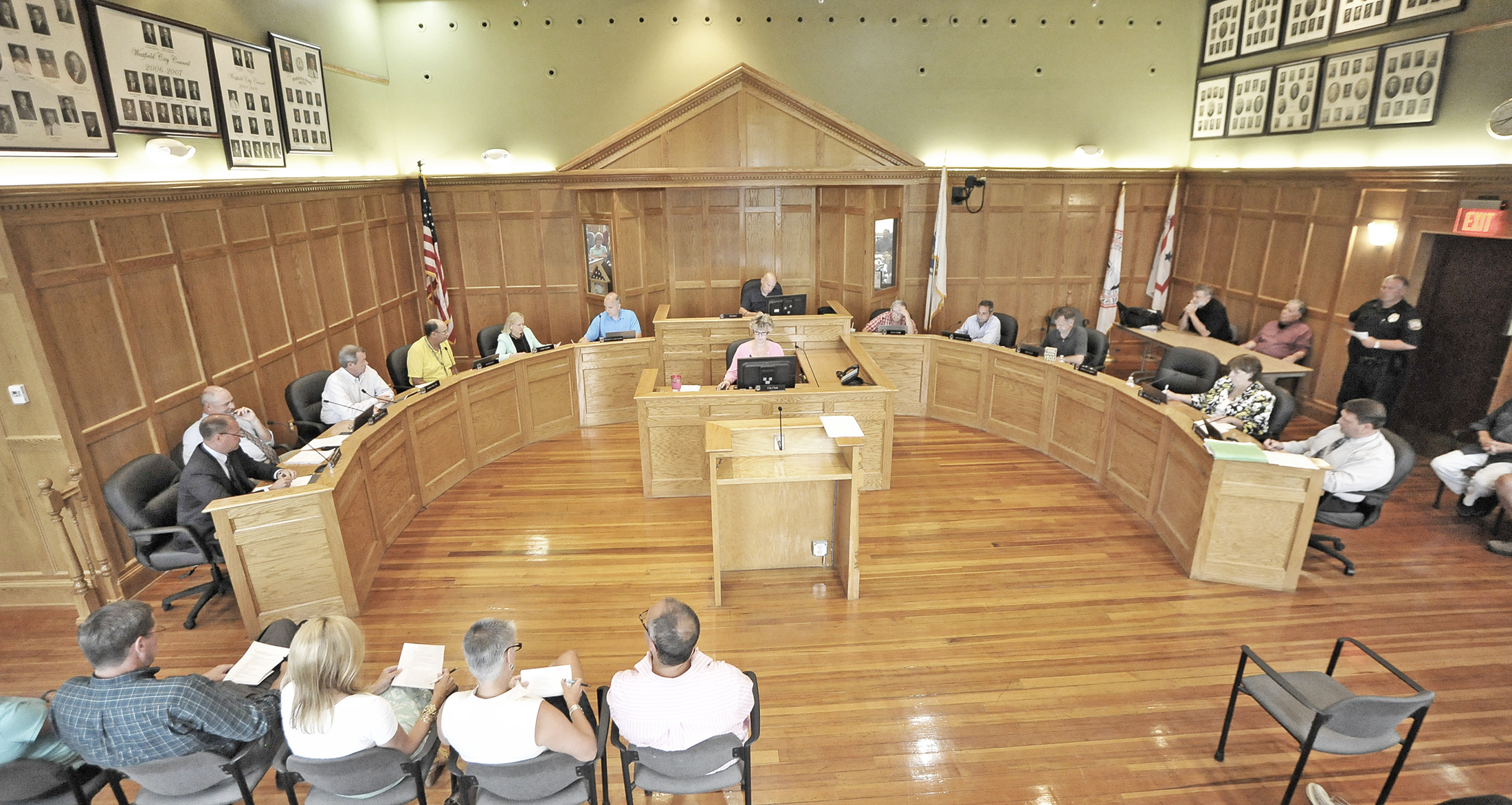WESTFIELD – As the Westfield City Council debates whether or not to hire a part-time scribe to record and publish minutes of meetings for council committees, boards and commissions, it turns out Westfield isn’t the only municipality lacking such a scrivener.
“In Holyoke we don’t have a person transcribing and there’s been talk about that,” said Holyoke Ward 3 City Councilor David Bartley. “All of our formal city council hearings and subcommittees are all on tape and broadcast live and recorded for posterity. But no one transcribes them.”
Bartley said that, for regular Holyoke City Council meetings, a clerk produces the minutes but doesn’t write a narrative of the meeting and an administrative assistant provides a narrative that supplements the meeting’s formal agenda.
“If a councilor is just kind of producing rhetoric, that isn’t transcribed. But if a councilor has something specific or makes a critical point, thats transcribed,” said Bartley.
He also added that, due to budgetary constraints, the likelihood of Holyoke’s City Council hiring even a part-time scribe is slim.
“There may’ve been talk of that before I came on city council three years ago, but there’s nothing imminent,” said Bartley.
Holyoke does have an Administrative Assistant to the City Council, who the city’s Personel Director Robert Judge said makes about $38,000 a year.
“Their job description includes things like delivering communications, notifying city council committee members of meetings and assist in those meetings,” said Judge. “They must also prepare responses and follow-ups to communications, provide background data on agenda items for review by council members and forward requests for council orders, resolutions and ordinances to the city clerk, law department and other municipal departments.”
Springfield City Councilor Melvin Edwards said that a secretary for the city council takes the minutes for their meetings and that those meetings are televised.
“Ours are televised and recorded as part of the cable contract,” said Edwards. “They’re public – you can watch them live and then they’re re-broadcast two or three days later.”
Edwards said he doesn’t believe that the secretary who transcribes the meetings transcibes them verbatim, but that she takes general notes and jots down particular points of interest.
“What I think of when I think of transcription is what I see in a court room, when someone has that particular skillset and utilizes a particular type of machine,” he said. “But our meetings are recorded.”
Bill Dwight, president of the Northampton City Council, said that in addition to recording the meetings on video, they have a secretary who works over 20 hours a week assembling and posting meeting agendas and recording meeting minutes.
“Mass. Open Meeting Law now allows for video recordings to qualify as a portion of the minutes, although you still have to record the votes,” he said. “So in combination of the video documents and the secretary’s recording of the votes, we achieve completion.
“There aren’t a lot of city governments in the region. It is mostly town meetings for the most part,” he said. “I know that this is true for Holyoke and Easthampton and I’m pretty confident that it’s true for Greenfield, and it’s usually somebody in or associated with the city clerk’s office. Essentially they’re serving the council, as opposed to the mayor or city manager.”
Northampton Mayor David Narkewicz said that the secretary referred to by Dwight gets paid $22.63 an hour and serves as the clerk to the city council as part of her duties as assistant city clerk.
“We do have a part-time person in the city clerk’s office who we added to try to supplement clerk duties,” he said. “It is always a constant challenge for cities and towns, particularly because we’re required under the Open Meeting Law to have descriptive agendas and to keep detailed minutes for all of our meetings.”
Narkewicz referenced how Northampton’s city council meetings are broadcast and streamed live through Comcast and are available on websites such as Youtube.com.
“People have access to us (on the Internet and cable TV), but a recording isn’t enough. You still have to take minutes,” said Narkewicz. “The broadcast piece is kind of irrelevant to the open meeting law. You still have a written record of the votes, subjects and discussions. The video can’t replace that.”
Westfield Mayor Daniel M. Knapik said that the city is “close” to a deal with Comcast that would bring a new cable license to the city, and said it’s likely to fall between five to 10 years.
“Part of this opportunity is to provide funding for some capital equipment to upgrade our public access activities,” he said. “We’re looking to use some of the Comcast money to develop a studio concept downtown.”
As to whether the Comcast deal – which would enable the city to broadcast and stream city council meetings – would alleviate some of the need for a part-time scribe, Knapik feels there is no reason councilors can’t handle the task themselves.
“I served eight years on the council and there’s not a lot of heavy lifting to taking notes. If you don’t want to take the notes, don’t be a chairman,” said Knapik. “We have been investigating a portable, remote operated system for a while now so that meetings could become televised and operated without the use of a technician. I think you’ll probably see that come to life sooner rather than later.”


